MercoPress. South Atlantic News Agency
Environment
-
Tuesday, April 23rd 2024 - 09:15 UTC
Falkland Islands celebrates World Earth Day and its challenges

April 22nd is World Earth Day, and three leading Falkland Islands experts in the environment and protecting our planet's scarce resources addressed the issue. They are Esther Bertram, CEO of Falklands Conservation, Dr. Paul Brickle Executive Director of the South Atlantic Environment Research Institute, SAERI, and Dr. Rachel Cooper, Head of the Falkland Islands Government Environment Department.
-
Friday, April 19th 2024 - 21:48 UTC
Dead penguins turn up in Mar del Plata
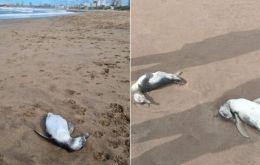
At least 40 dead penguins were found on the Camet beaches in the northern part of the beach resort and fishing industry hub of Mar del Plata. Experts say that despite its shocking effect on residents these events have been occurring every year as a result of climate change and the ensuing lack of food. The first such appearances date back to “between 2000 and 2005,” it was explained.
-
Thursday, April 11th 2024 - 19:44 UTC
Rotating supply cuts launched as Bogotá's water reservoirs are running dry
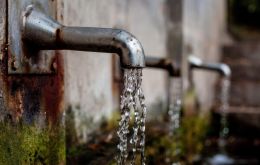
Authorities in the capital of Colombia began rationing water on Thursday as local reservoirs were reported to be nearing alarming levels due to the El Niño phenomenon coupled with the aftermaths of global warming. It has not been ruled out that the severe drought might result as well in an energy crisis hitting some 10 million people who live in Bogotá and the surrounding areas.
-
Wednesday, April 10th 2024 - 19:26 UTC
Climate change: March this year was the hottest ever recorded

According to a study released Wednesday by the European Climate Observatory, last month was the hottest March on record worldwide, as well as the tenth consecutive month with maximum temperatures recorded at sea since June 2023. March 2024 recorded an average of 14.14 degrees Celsius (57.9 degrees Fahrenheit), beating the previous record of 2016 by a tenth of a degree.
-
Monday, April 8th 2024 - 19:24 UTC
Panama Canal chokepoint approaching an end as the rainy season begins in May
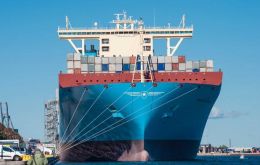
The chokepoint at the Panama Canal could be approaching an end as weather forecasts indicate ample rain fall is heading for Panama, which if correct means many international shipping believe a return to normal crossing s possible in the near future.
-
Saturday, April 6th 2024 - 11:16 UTC
Brazil: Mercury detected in Yanomami people's hair samples
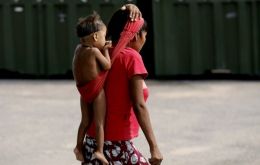
The Rio de Janeiro-based Oswaldo Cruz Foundation (Fiocruz) conducted a series of tests among Yanomami indigenous people in the state of Roraima in northern Brazil which detected the presence of mercury in 84% of the hair samples taken from them in October 2022, Agencia Brasil reported this week. These findings were linked to illegal gold mining in the area.
-
Friday, April 5th 2024 - 10:55 UTC
New Board Chairman at Falklands Conservation

After ten years as Board Chairman of Falklands Conservation, the charity thanked and wished a heartfelt farewell to Roger Spink. His position will be taken over by Tom Blake, from FIDC, Falklands Development Corporation.
-
Friday, April 5th 2024 - 10:45 UTC
Praise for Falklands Conservation in The Times list of charities to support in 2024
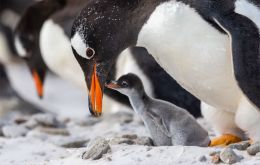
As of the end of March, Falklands Conservation was featured in The Times and The Sunday Times as one of the charities to support in 2024. The article points out that UK has a long history of charitable giving (“charity” was first defined in English law as early as 1601). The problem comes with choosing which worthy organizations to give to.
-
Wednesday, March 27th 2024 - 19:28 UTC
Brazil and France sign key deals during Macron's visit

Presidents Luiz Inácio Lula da Silva and Emmanuel Macron launched Tuesday in Belém a € 1 billion investment bioeconomy program for the Brazilian Legal Amazon as well as for the part of the Amazon within French Guiana to raise funds through public and private investments over the next four years, Agencia Brasil reported.
-
Friday, March 22nd 2024 - 09:12 UTC
Over 4,700 Uruguayans displaced due to heavy storms
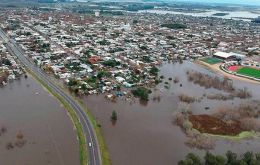
A total of 4,722 Uruguayans were displaced from their homes Thursday as heavy rains caused severe floods in the departments (provinces) of Canelones, Colonia, Florida, Durazno, San Jose, Paysandu, and Rivera, the National Emergency System (Sinae) reported. President Luis Lacalle Pou visited some of the affected areas.
